Growth
7 min read
Dear Health Tech Startups, It’s Your Time to Shine. 10 Healthcare Companies to Watch
In times when we plan the first holidays in space and experiment with self-driving cars, we’re facing a public health crisis. Governments around the world are struggling to build effective strategies on how to cope with a virus outbreak. Few have been prepared.
It’s becoming obvious, we haven’t invested enough in healthcare. VCs and government-backed funds have been obsessed with AI, fintech, transportation, and viral marketplaces. Media tends to be more excited about fancy gadgets and $100M+ investment rounds in viral apps, rather than ambitious companies focused on research and innovation that won’t bring immediate returns.
In the health sector, tech innovations are still not largely adopted by public services, limiting our access to more efficient healthcare. Most of the products and inventions are not suitable for B2C use, so we rely on policymakers to make them more accessible.
Things are slowly changing. We’re seeing a wave of “doctorpreneurs” across the globe trying to change medicine as we know it – from communication to prevention, diagnosis, and treatment, there’s so much more that could be done. Apple, Microsoft and Google are already heavily investing in the future of healthcare. Alphabet’s CEO Sundar Pichai stated that “healthcare offers the biggest potential for the company to use AI to improve outcomes over the next 5 to ten years”, according to CNBC. $4B were invested only in healthcare AI startups in 2019.
Here at Pony, we’ve always been excited about innovation in the healthcare sector. Speaking to hundreds of entrepreneurs a year, we can see how health tech is changing, but the reality is – it could be growing much faster.
There’s something fundamentally wrong that in one of the most developed countries in the world, that prides itself with scientific achievements, you can book a cab in seconds, see a vet in an hour, but wait to be seen by a doctor for months. And this will become even more painfully obvious in the coming months.
We’ve shortlisted some of the most inspirational and influential health tech companies that are transforming the healthcare sector – from unicorns to small startups, all of them have the same mission – to bring health innovations to all of us as soon as possible.
Babylon
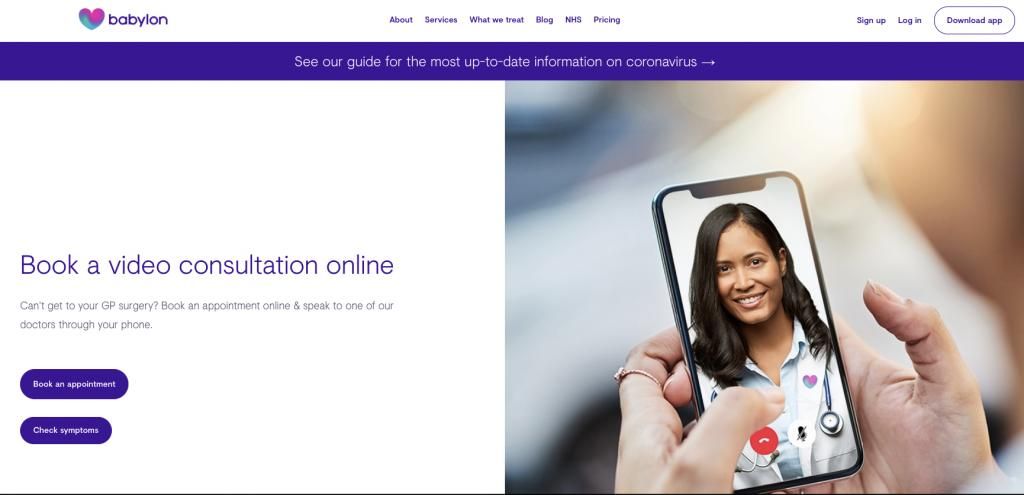
Already a unicorn, Babylon was founded with the simple mission to give everyone easier access to a registered GP, which has been a massive pain point for British patients in the last decade. You can have an online appointment with a GP in just a few minutes for £49 per consultation or subscribe to one of their packages to get even a better deal.
Healx
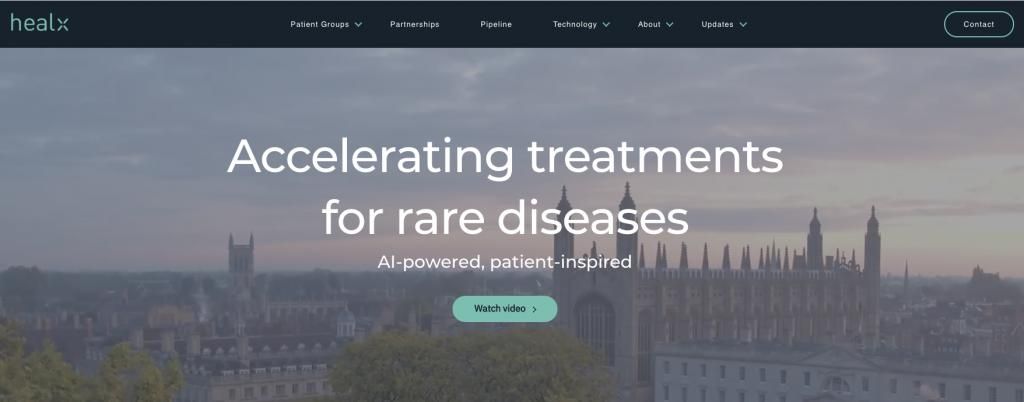
Healx is an AI-powered startup from Cambridge aiming to accelerate the discovery and development of rare disease treatments. Their AI drug discovery platform leverages public and proprietary biomedical data and features the “world’s leading knowledge graph for rare diseases.” Healx’s mission is to advance 100 rare disease treatments towards the clinic by 2025.
Pando
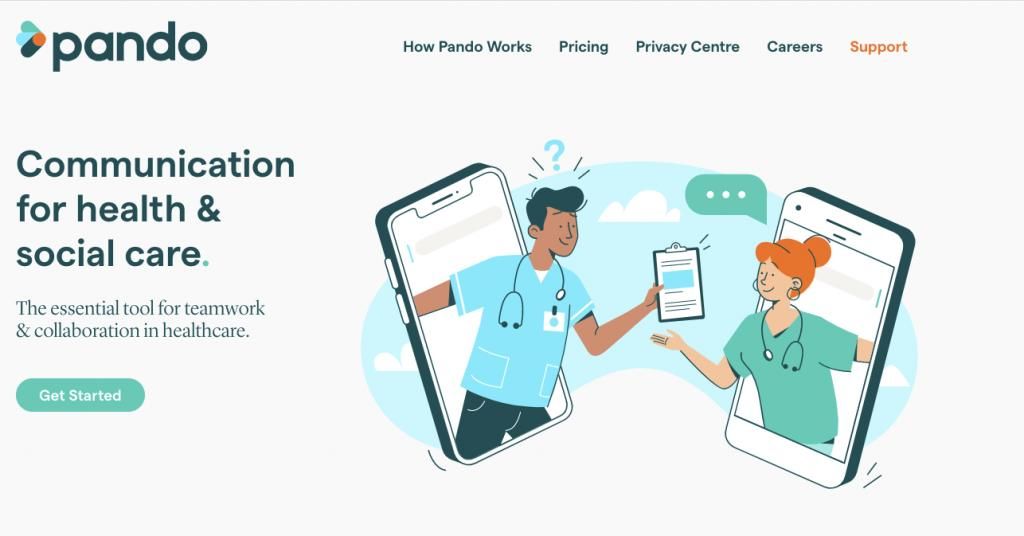
Previously known as Forward Health, Pando facilitates collaboration between health team members, hospitals and organisations. Poor communication and outdated tools for transferring patient’s data can sometimes cost lives. Pando makes it easier to safely record, keep and share sensitive patient data which leads to better functioning and less frustrated healthcare teams.
BenevolentAI
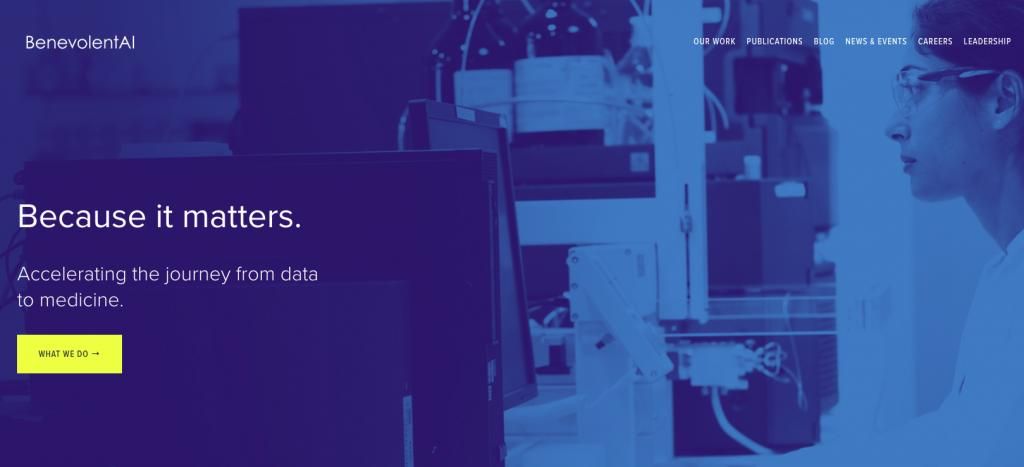
BenevolentAI uses AI to accelerate the drug discovery process. They say that they’re the world’s only technology company with end-to-end capability from early discovery to late-stage clinical development. BenevolentAI has active R&D drug programmes in disease areas such as ALS, Parkinson’s, Glioblastoma, and Sarcopenia.
Lantum

Lantum are modernising how healthcare organisations connect with their workforce, offering a secure online environment that efficiently matches available clinicians with open shifts, which is still a very slow and costly process for the NHS. Lantum was part of the NHS Innovation Accelerator, a program that highlights leading technologies within the NHS and helps them scale. It is said that Lantum has saved the NHS £7.7 million, by enabling more than 4.2 million GP appointments since 2012. The company claims it could save the NHS £1 billion every year by cutting out traditional recruitment agencies.
Doctify
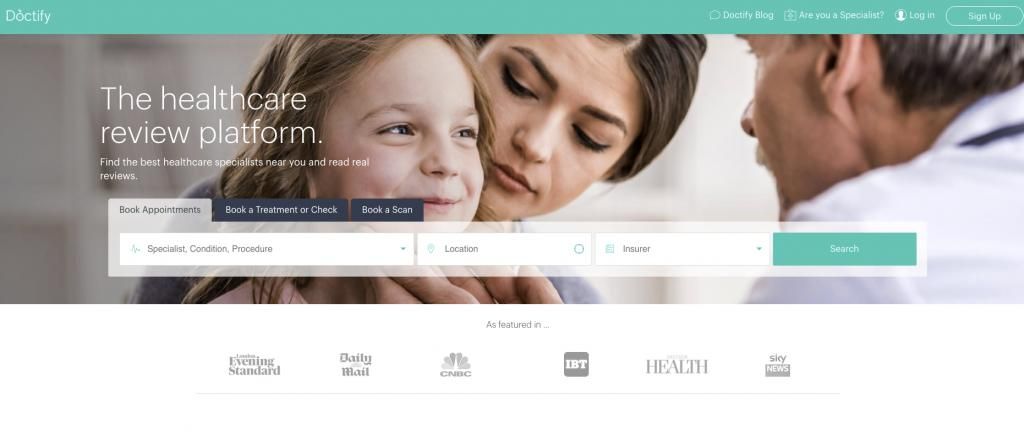
Doctify makes it easier for patients to find, compare, book and review healthcare service providers in the UK. People can search according to their condition, desired specialty, location, and insurer and book a private appointment hassle-free. It’s like a marketplace for doctors. Their rigorous reviews collecting process makes the product a brilliant information source for people looking for the right healthcare service provider.
Feebris
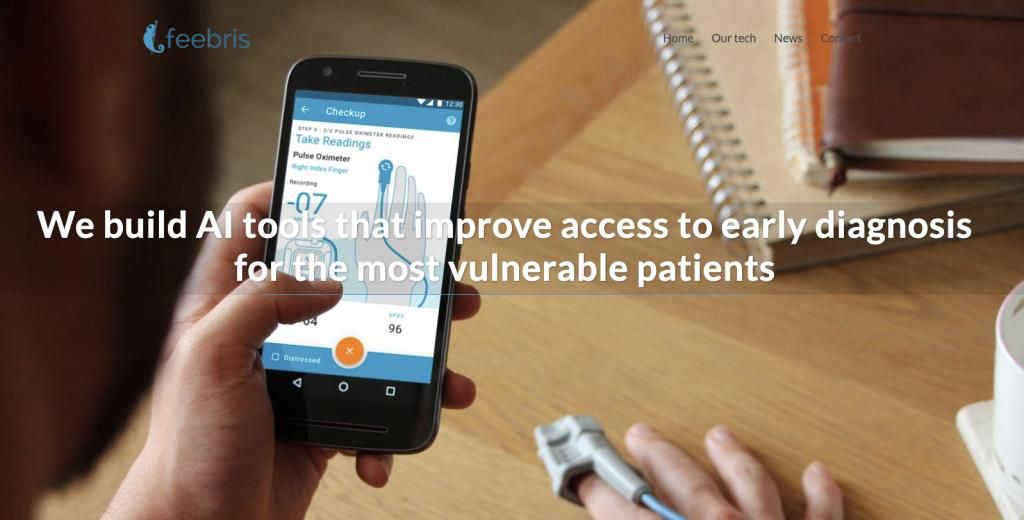
Another AI-powered startup, that empowers non-medical users to detect and prevent some of the most complex diseases, with a focus on children and the elderly. Feebris took part in the first 2019 Residency cohort of Google for Startups last year. They’re developing an AI engine that pairs with off-the-shelf sensors, things like digital stethoscopes, pulse oximeters, and use their algorithms to identify different markers of disease and then link them to detection of a complication or a specific condition.
Push Doctor
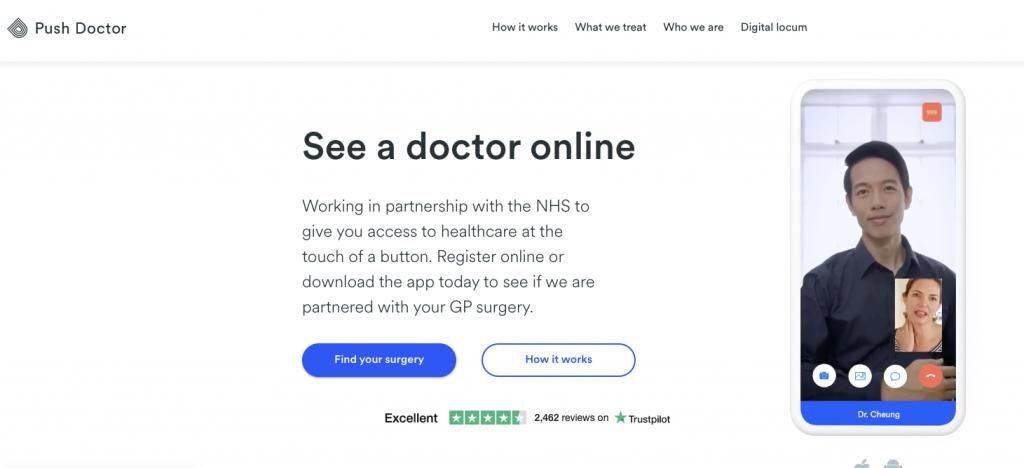
Video GP consultations are on the rise and Push Doctor is another UK player that is trying to dominate the space. In order to use them though, your GP needs to be Push Doctor’s partner which means the service is not open for everyone but this restriction makes it also more affordable for when it’s available for you.
Andiamo

The Husband and wife team are transforming the orthotics sector after a personal tragedy a few years ago. Andiamo delivers a medically effective orthosis globally within 2 weeks of a person’s need. Using big data, 3D printing and advanced clinical services, they’re empowering clinics and clinicians to help people in need more efficiently.
Syd
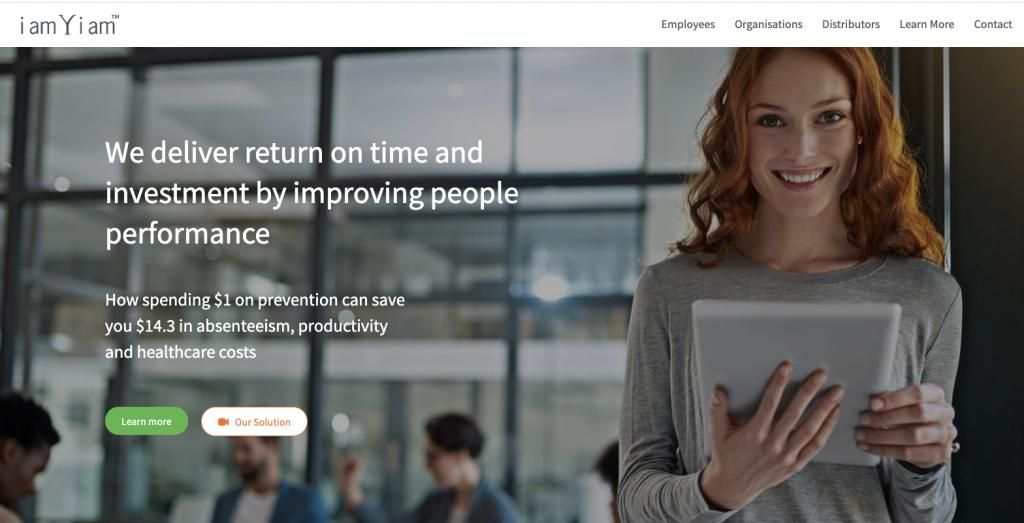
Syd are building the future of preventative medicine. They leverage AI, molecular research and digital technologies to fully understand the life quality status of a person and help them act upon their health journey. They enhance the management of health risks such as cardiovascular disease, stress, mental health conditions and musculoskeletal disorders. Partnering with employers around the world, they’re already used in 32 countries.
The challenge now is – how can governments, investors and policymakers support healthcare innovators to help us even faster?























